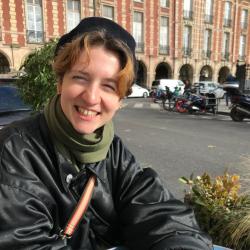Supervisor: Dr Nicholas Simcik Arese
Research overview:
This thesis looks at responses to Italian renaissance art and culture at the end of the nineteenth century. Following the publication of texts such as Walter Pater’s Studies in the History of the Renaissance in 1873, interest in renaissance culture exploded. This thesis proposes a new story of renaissance reception centred around surprising claims for its enlivenment in everyday life. Women dressed up like figures in Ghirlandaio’s frescoes, dancers performed Botticelli’s artworks, and people dreamed they could return to the time of the renaissance. Moving across diverse media and genres, this thesis argues that these creative engagements represent a significant moment in the history of art history prior to its professionalization. Although the desire to create a science of art history was slowly taking disciplinary formation, a host of experimental ways of engaging with the past were shaping debates about the nature of historical experience. By focussing on figures associated with Aestheticism and Decadence, this thesis sheds light on the queer forms of art history at the end of the nineteenth century, as well as the vital contribution of women to the discipline. Some of the individuals this thesis investigates are Michael Field, Vernon Lee, Walter Pater, Maud Cruttwell, Lina Duff-Gordon, Isadora Duncan, Alexander Sacharoff, Natalie Barney, Olive Custance and J. A. Symonds.
Biography:
Frankie Dytor is a PhD Student at the University of Cambridge. Their PhD is funded by a Lander Studentship, hosted by Pembroke College and co-funded by the Arts and Humanities Research Council. In 2020-2021 they were a visiting fellow at the University of Hamburg, as a Hanseatic scholar funded by the Alfred Toepfer Foundation. Frankie completed their MPhil at Trinity Hall, Cambridge, funded by the Isaac Newton Scheme.

